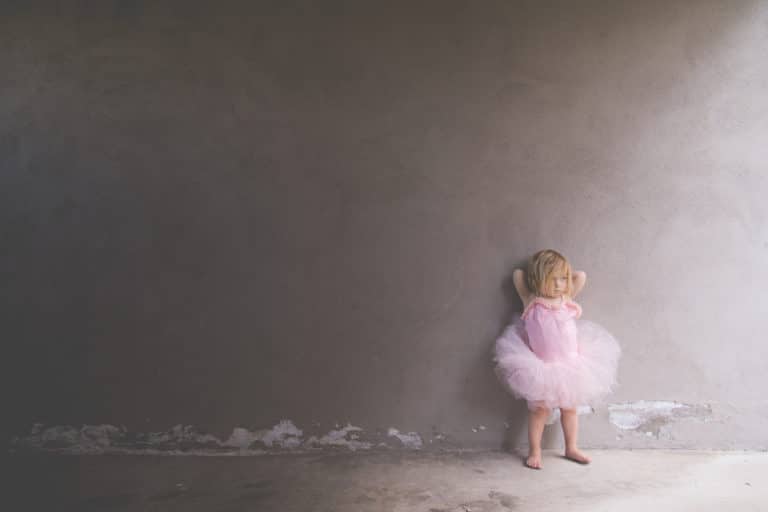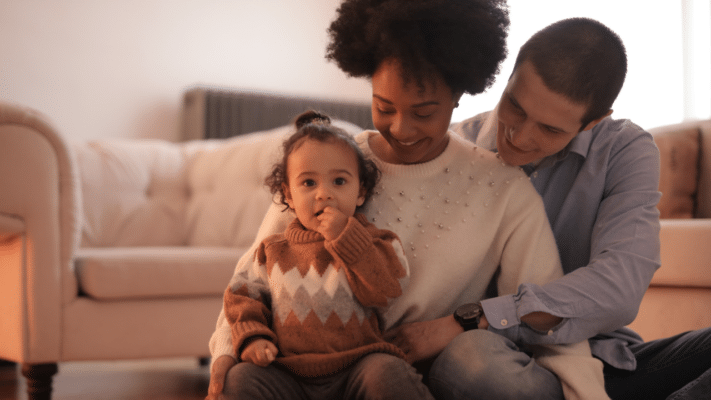Being Human and Making Dangerous Assumptions
As we know, parenthood is not easy. From the moment we fall pregnant, we begin learning and, if we ever make the mistake of thinking we’ve got it all worked out, the goalposts move again. Whether this is changes in a baby’s sleeping pattern or suddenly realizing that our children have become unpredictable teenagers, this constant change is about the only consistent element of parenting. Add to that the fact that we’re human, the potential for mistakes can be huge.
Before a severe breakdown and beginning therapy fifteen months ago, I was definitely ill-prepared for my daughters’ teen years that loomed ahead in the near future. I was used to being in control of my emotions and hadn’t coped very well with two year old tantrums, let alone hormone induced explosions.
I have to admit too, that my understanding of them was also being held back by seventeen years of being a primary school teacher and the dangerous assumption that I had seen it all. There’s an ass in assumption somewhere!
How Therapy For Depression Began to Change My Parenting Skills
Let’s just say that before beginning to unpick my own emotions, there was a strong expectation of the ‘British stiff upper lip’ both from myself and my daughters. Dramas just didn’t win my sympathy and it was generally a ‘talk to the hand’ situation when they occurred.
Rather than trying to understand their reactions, I often put them down to the differences in our upbringing: I grew up in an English family that was quite reserved about expressing their feelings; whilst my daughters were born in Italy and have been heavily influenced by the more expressive culture around them.
Fifteen months of therapy to help me recover from severe depression has changed all of that.
Therapy has taught me to identify my emotions and to name them; to acknowledge their power and to face them; and to avoid following my instinct of ignoring and burying them. That doing so doesn’t mean I’m not strong; and that doing the opposite is extremely bad for my mental health. This has obviously had an impact on me and the way I cope with life’s challenges but, over the last few months, I’ve also noticed how much it has started to affect the way I react as a parent.
Above all, there are no assumptions any more. I am learning every day and I acknowledge that. That, in itself, makes a huge difference. It’s also important to accept that for every occasion I’m getting it right these days, there’s still room for improvement on another five.
That said, here are three moments when I know therapy had a significant impact on the way I responded to my daughters and, dare I say it, made me a better parent:
1. The Cake Incident – Reflecting Before Reacting
A couple of weeks ago, I had the delight of being caught in the heart of one of those explosions that was undoubtedly influenced by hormones but, unfortunately, also caused by me.
Without knowing it was being saved for a ‘special family moment’, I cut up a chocolate cake my daughter had made the evening before and shared some with her twin sister while she was out. I hadn’t realized that the frosting and decorating were still a work in progress and she’d been planning to finish it when she got home. Big oooops!
On her return home, and realization of our misdemeanor, I was faced with some very high-pitched shrieking, claims that ‘nobody understands me’, stomping up the stairs and door slamming. Immediately, my blood pressure shot up and I despaired about her dramatic reaction. A year ago, at best, I would have just left her to calm down and made light of it later.
At worst, I would have had a rant about inappropriate behavior.
But then I took a few deep breaths and reflected. There was clearly more to this than met the eye and, I knew, my reaction was important. So, I left her to calm down for a while in her room. When my instinct told me it was the right time (no science involved there at all!), I made my way upstairs and knocked on her door. Apologizing for my mistake, I asked for forgiveness and hugged her. Expecting another rant, I held my breath but was surprised as she sobbed in my arms. Having calmed down, she told me how important it had been to her to have that ‘special family moment’ once the cake was decorated.
However, she realized she’d over-reacted and apologized too. Then she kissed me, said thanks and got over it. She even forgave me to the point that I was allowed to another slice after dinner! If I’m honest, a year ago that rant would have been the most likely option. As it was, taking time to reflect brought out both the best in me and the best in her. More importantly, I hope, it also showed her that emotions can be expressed, they can be explained and they can also be excused.
2. The Swimming Incident – Reading The Silence
Both of my daughters train for competitive swimming three times a week and compete in regular galas. I’m a great fan of sport and exercise but I happen to think this is a lot. Maybe even too much. Yet they like it. They choose to commit to it every year and the deal is simple: we will pay for it and drive them around but we expect commitment from them. I don’t expect to rush home from work only to be met with whining in the car on the way to training.
This is pretty reasonable and they accept it. It doesn’t mean it’s always effective though. Most of the time they go willingly but there are days when the excuses and the whining kick in and the inevitable ‘discussions’ take place. I’ve never been patient about this and I don’t apologise for that. They’ve swum for years and know what the commitment entails. So I basically expect them to get on with it.
Before therapy, there was little flexibility in this (as my tone might suggest!). During a busy week, I might have allowed them to miss one training session if we’d discussed it beforehand. But an ‘already on our way in the car ‘cancellation was out of the question. Recently, we were on our way to training and I was trying to keep up with one of my daughters who was enthusiastically babbling about her day. Has anyone else noticed that their twelve old child’s talking speed has suddenly quadrupled or is it my forty-one year old brain that is slowing down?!
As we arrived, enthusiastic babbler grabbed her bag and got out of the car. Her twin sister slowly moved to do the same thing. The speed of her movement caught my attention and it was then that I realised that she’d barely spoken during the fifteen minute journey. As ever, I was in a rush having planned to squeeze in three chores while they were in the pool and I almost didn’t register enough to react.
Yet, once again, my instinct kicked in. The same instinct that made me reflect over The Cake Incident. The instinct that I always had but has been cultivated by therapy…
Saying goodbye to her twin sister, I held her back and asked if she was okay. I was met with a shrug, a mutter about being tired and another mutter about needing to get to the pool. Again instinct told me to probe so probe I did. It didn’t take much. The tears began to flow and I waited. I didn’t step in or tell her to calm down or tell her to stop crying or look at my watch (I would have done all those things a year ago). I waited, passed her a tissue and waited again. Once she’d calmed down, she whispered, ‘There’s nothing wrong. I’m just so tired.’
‘How about I take you home to crash on the sofa then?’ was my response as I hugged her. I felt her relief as her body relaxed in my arms. And I smiled inside as I turned the engine on. I could feel it. I was becoming a better mum every day. And my daughters could feel it too.
3. The Maths Group Incident – Listening Rather Than Leading
My husband and I held our breaths as one of our daughters came into the room. We’d received an email from school that we had to share with her. She’d been moved down a maths group because she’d been struggling at school. And, to make it worse, her twin sister hadn’t been moved down despite struggling in the same way.
Her reaction was quiet. Limited. Unexpressive. She left the room, leaving us confused. I had expected tears. And I was sure she cared far more than her non-reaction suggested. I wanted to rush upstairs and talk to her, reassure her and discuss strategies for helping her. My teacher instinct was kicking in and I just wanted to get in there and fix it for her. But I didn’t.
My ‘new me’ instinct was kicking in too and it told me to wait. So wait I did and, once I stopped waiting, I chose to listen to her rather than lead her where I felt she was most likely to go.
In the privacy of her room, she did cry. In fact she sobbed. A lot. My heart broke for her. I knew she was disappointed. And I wished I could protect her from her feelings. I left her to cry for a while and then, when I felt she would benefit from calming down, I tried some breathing exercises with her.
Again, this was a far cry from the ‘dry your eyes and get on with it’ reaction I would have had a year ago. Half expecting her to giggle and find it ridiculous, I was really pleased with how she responded. Hands on our bellies, we took ten deep breaths together and then stopped. She asked to it again so we did. By this time, she’d stopped crying completely.
Teacher instinct told me to offer support, make plans for maths skills practice together and to remind her that she could move back up again with hard work. It also told me to discuss how she was going to approach telling her friends. Obviously they would soon all know. How could she broach the topic? I imagined that it would be hard to tell them. That she’d be embarrassed. That maybe just telling her best friend would help so she’d have support at school if she needed it. I was cringing at the thought of peer pressure in these situations and how much it can effect self-esteem.
But, thankfully, the ‘new me’ decided to keep her mouth shut and simply listen. My daughter was now calm. I waited. And I waited (oh how hard that is!). She was clearly thinking. Shyly she asked if I would mind leaving the room. Sure, I responded, feeling only marginally hurt (!).
You see, she explained, I’ve worked out that I want to call six friends to chat to them about it. **** will understand because she’s been through it too. **** will get it because she finds maths hard. **** is really good at maths so she can help me. And so she went on.
A few minutes later, I hovered outside her room and listened in as she video called her friends. This time it was my turn to cry. I was struck by my daughter’s openness and honesty. By her willingness to be vulnerable, to ask for help, to express her feelings. And I was struck by her friends’ empathy, support and love that were expressed through a range of squeals, comforting words and offers of help.
I shared it with my husband and his eyes showed the same pride and relief that I felt too. The following day we received an email to say that her twin sister had been moved down too. I was disappointed for her too, of course. But I was ready to listen, rather than lead, and I was delighted to see that she’d been listening in her own way as well. Normally mega concerned with what others think, she talked about it openly with friends straight away and then moved on. I was there for her, ready. But she didn’t even need me. I think her sister had taught her more than I could have done.
If you’ve stayed me with until the end of this long article, then thank you. I could have cut it shorter but I wanted my daughters’ voices to do a lot of the talking for me. I’ve learnt a huge amount from therapy but, above all, I’m constantly learning from them too. Therapy has taught me to listen. To have respect for emotions. To allow them to visit and then to let them go. My daughters have shown me that they can do all of that too; and even more. The other day, I caught myself sharing a major disappointment with a friend, much as my daughter did. Now that is definitely the ‘new me’ – I would have kept it to myself in the past and hoped no-one would notice!
So, as a parent, I challenge you to:
- Avoid making assumptions
- Reflect before reacting
- Listen to the silence
- Listen rather than lead
- Be open to learning from your children
As much as therapy (and my daughters) are teaching me to do this, as I also said, I still get it wrong more often than right. But hey, we have to start somewhere. We are only human, after all.












